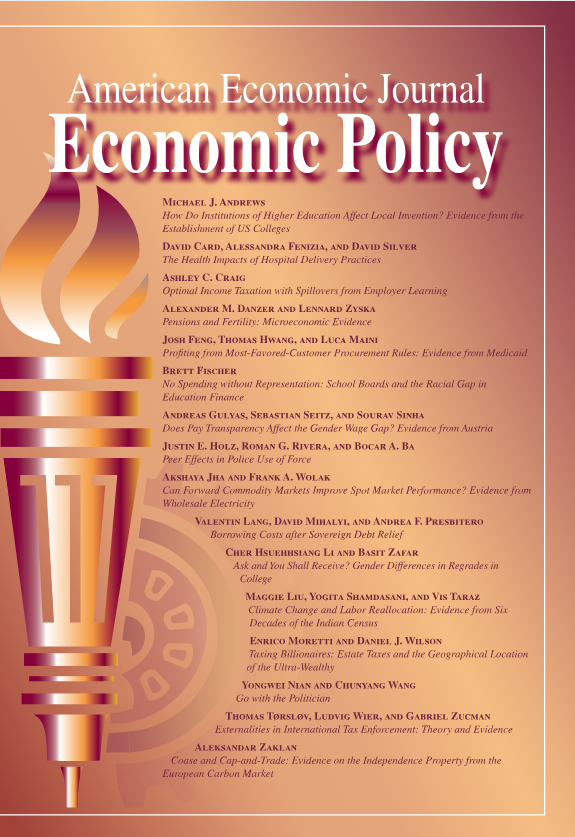抵押贷款信用可获得性的影响:来自最低信用评分贷款规则的证据
IF 5.6
1区 经济学
Q1 ECONOMICS
引用次数: 0
摘要
本文利用抵押贷款机构最低信用评分阈值的变化来可靠地识别获得家庭信贷的影响。低于这些门槛会对长达两年的借贷产生非常大的负面影响,而这些影响无法在四年内扭转。这种影响尤其集中在信贷需求相对较高、信贷供应面临相对较大收缩的个人身上。此外,获得新的抵押贷款减少了非抵押贷款债务的拖欠,并似乎溢出到对汽车贷款的需求。(凝胶g21, g51, r21)本文章由计算机程序翻译,如有差异,请以英文原文为准。
The Effects of Mortgage Credit Availability: Evidence from Minimum Credit Score Lending Rules
This paper uses changes in mortgage lenders’ minimum credit score thresholds to credibly identify the effects of access to household credit. Falling under these thresholds has very large negative effects on borrowing for up to two years, and these effects fail to reverse within four years. The effects are particularly concentrated among individuals who have relatively high credit demand and face relatively large contractions in credit supply. In addition, access to new mortgage credit reduces delinquency on nonmortgage debt and appears to spill over to demand for auto loans. (JEL G21, G51, R21)
求助全文
通过发布文献求助,成功后即可免费获取论文全文。
去求助
来源期刊

American Economic Journal-Economic Policy
ECONOMICS-
CiteScore
8.20
自引率
1.90%
发文量
68
期刊介绍:
The American Economic Review (AER) is a general-interest economics journal. The journal publishes 12 issues containing articles on a broad range of topics. Established in 1911, the AER is among the nation's oldest and most respected scholarly journals in economics.
American Economic Journal: Economic Policy publishes papers covering a range of topics, the common theme being the role of economic policy in economic outcomes. Subject areas include public economics; urban and regional economics; public policy aspects of health, education, welfare and political institutions; law and economics; economic regulation; and environmental and natural resource economics.
 求助内容:
求助内容: 应助结果提醒方式:
应助结果提醒方式:


